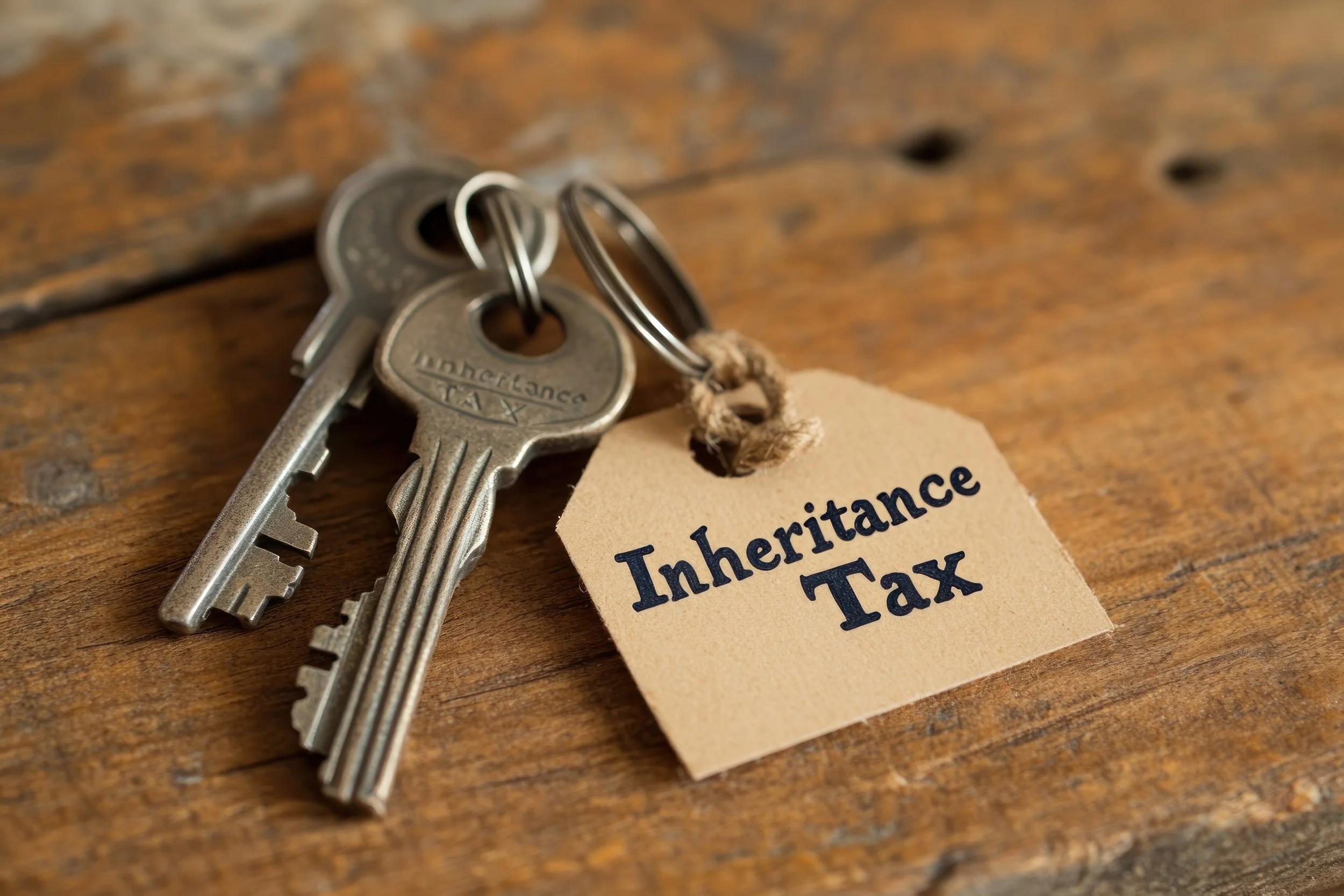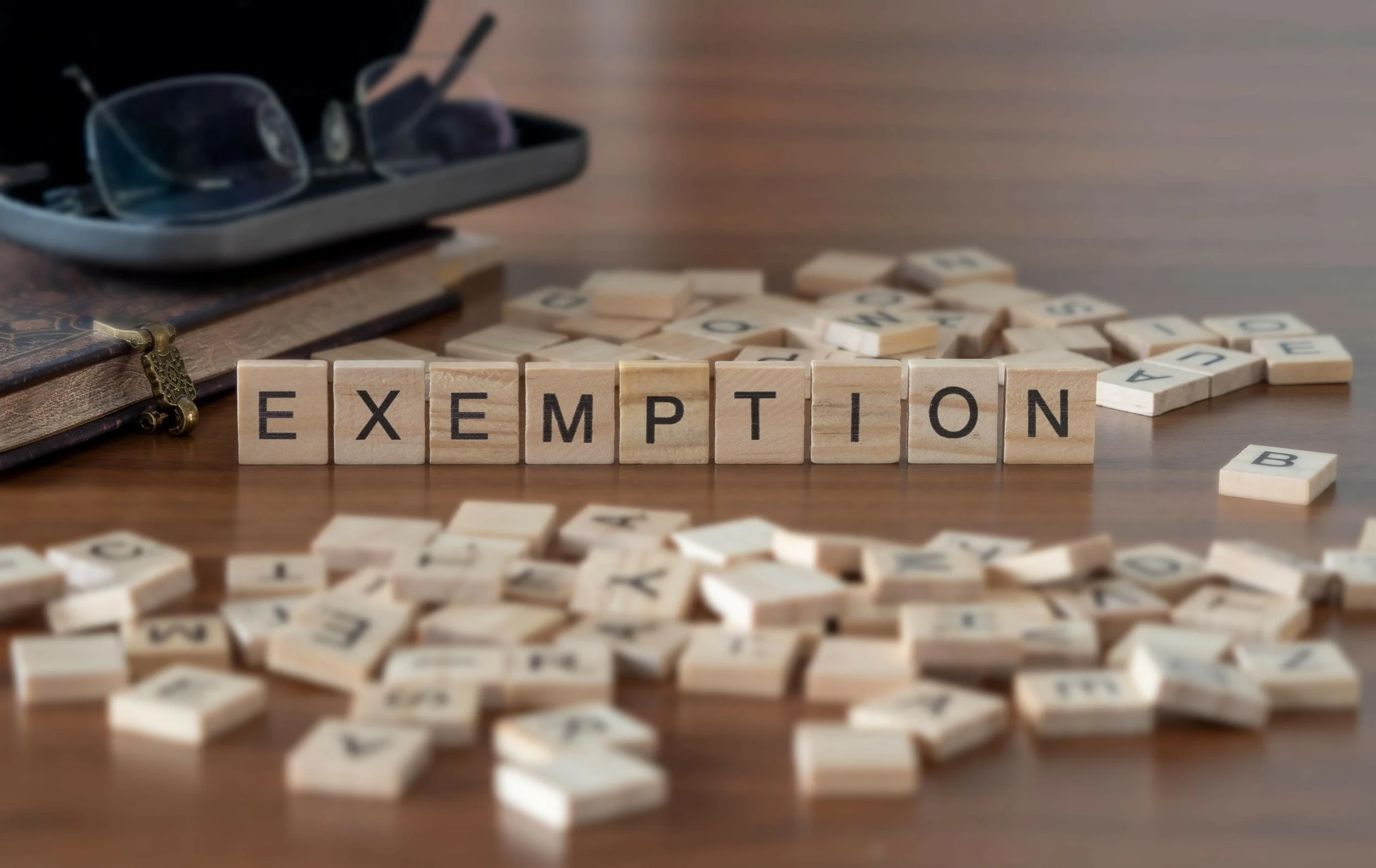Inheritance Tax. A Brief Introduction
When we die, Inheritance Tax may fall due on our estate (property, money and possessions), subject to a number of conditions.
There is, normally, no inheritance tax to pay if;
The value of your estate is below the IHT threshold (currently £325,000*).
You leave everything over and above that amount to your spouse, civil partner, a charity or community amateur sports club.
* If you gift your home to your children or grandchildren (including adopted, foster or step children) your IHT threshold can increase to £500,000.
Worthy of note that, if we are married, or in a civil partnership, and our estate is worth less than the current threshold, when we die, any unused threshold can be added to that of our surviving partner.
You may, potentially, still need to report the estate’s value, even if it is below the threshold.
The standard Inheritance Tax rate is currently 40%, which is only charged on the amount of the estate over and above the IHT threshold, so, for example, if our estate is worth £500,000, and the current tax free threshold is £325,000, then inheritance tax would be charged at 40% on the difference between the two, of £175,000. So, on an overall estate value of £500,000, the IHT due would be £70,000.
Who Pays The Inheritance Tax?
As a general rule, funds from the estate are used to pay the tax to HMRC.
This is normally done by whoever is dealing with the estate, which, in the event of there being a will, will be the executor.
If we make a gift to someone, whilst we are still alive, and then we die within the 7 year period, then that recipient may need to pay some IHT, if our estate is over the threshold.
Reliefs And Exemptions
The relief we are most likely to encounter is ‘taper relief’, which applies on gifts made while the donor is still alive. If the donor lives for a further 7 years, then no IHT is due, however, if they die before the 7 year period, then some IHT may well be due. This is payable on a sliding scale, known as taper relief, and is based on how close to the 7 year period the donor survives.
Other reliefs, such as Business Relief, or, less commonly, Agricultural Relief may allow certain business assets to be passed on free of IHT, or, at least, at a reduced rate.
Passing On A Home
You can pass a home to your spouse, or civil partner, completely free of IHT.
If you leave your home to any other person, it counts towards the value of the estate for IHT purposes.
As already mentioned previously, if you own your own home (or a share in it) your tax free threshold can increase to £500,000, but only if;
You leave it to your children or grandchildren (including adopted, foster or step children).
Your estate is worth less than £2 Million.
Giving Away A home Before You Die
There’s normally no Inheritance Tax to pay if you move out and live for another 7 years, just like any other asset, however, many people wish to continue living in their home, once they have given it away. If we wish to do this, then we will need to:
Pay rent to the new owner, at a commercial rate.
Pay our share of the bills.
Live there for at least 7 years.
If you don’t comply with these conditions, then it counts as a ‘gift with reservation’, and will be added to your estate, when you die. A gift with reservation of title is one where you give something away, but continue to benefit from it.
You do not have to pay rent to the new owners, if both the following apply:
You only give away part of the property.
The new owners also live at the property.
If you die within 7 years, your home will be treated as a gift, and the normal 7 year rule will apply. Worth noting that this does not apply, to gifts with reservation.
Other examples of gifts with reservation include a caravan you have given away, but still use for free, for your holidays, or a valuable painting you have gifted, but still hangs in your house.
Rules On Giving Gifts
Gifts given less than 7 years before we die may be subject to IHT, however, this will depend on;
Who you give the gift to, and their relationship with you.
The value of the gift.
When the gift was given.
We will be happy to advise you on the specifics of what you can give away, tax free, during your lifetime.
What Counts as a Gift
Gifts include:
Money
Household and personal goods
Property, land or buildings
Stocks and Shares listed on the London Stock Exchange
Unlisted shares held for less than 2 years prior to death.
A gift can also include loss in value when you sell something for less than it is worth. For example, if you sell your house to your child for less than its market value, the difference in value constitutes a gift.
Anything you leave in your will is not classified as a gift, in this context. Property and possessions left in your will form part of your estate, which is then used to calculate your IHT liability, if any.
Inheritance Tax Exemptions
Certain gifts are exempt from IHT. There is no IHT to pay on gifts between spouses or civil partners. You can give as much as you want during your lifetime, provided they:
Live in the UK permanently
Are legally married or in a civil partnership with you.
Likewise, there’s no IHT to pay on any gifts you give to charities or political parties.
In addition to the above, we have a £3,000 annual exemption for gifts, allowing us to give up to £3,000 per tax year (not per person) as a gift. Any unused exemption can be carried forward to the following tax year, but only for one year.
The next exemption we have is the ‘Small Gift Allowance’. We can give as many gifts as we want, of up to £250 per person, in each tax year, provided we haven’t used any other allowances on that person.
Birthday and Christmas presents, from our regular income, are exempt from IHT.
Gifts For Weddings Or Civil Partnerships
If someone is getting married, or starting a civil partnership, then we can give them a tax free lump sum gift, subject to determined limits, which are;
£5,000 to a child.
£2,500 to a grandchild or great grandchild.
£1,000 to any other person.
You can combine a wedding gift allowance with any other allowance (except the small gift allowance).
Making Regular Payments
You can make regular payments to another person, for example to help with their living costs. There is no limit to how much can be given, provided:
The payments are affordable after meeting your normal living costs.
You pay from your regular monthly income.
These are known as ‘normal expenditure out of income’. They can include:
Paying rent for your child.
Paying into a savings account for a child under 18.
Giving financial support to an elderly relative.
You can combine normal expenditure out of income with any other allowance (except the small gift allowance).
The 7 Year Rule
If we die more than 7 years after giving a gift, then no IHT is due on the gift. If we die within 7 years, then the amount of tax due depends on the number of years between the date of the gift and the date of our death. This is calculated on a sliding scale, as follows:
Less than 3 years between gift and death, IHT is at the full rate of 40%.
For 3 to 4 years, this is reduced to 32%
4 to 5 years is 24%
5 to 6 years is 16%
6 to 7 years is 8%
Over 7 years, there is zero IHT.
Keeping Records of Gifts Given
The person dealing with your estate will need to work out what gifts you gave in the 7 years prior to your death. You should keep the following records:
What you gave, and who to.
The value of the gift.
When you gave it.
As usual, this is simply a basic introduction to the topic of Inheritance Tax. If you have any specific, or more detailed questions, we are always very happy to discuss your questions with you.






